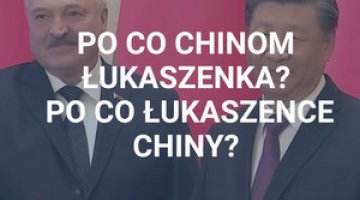The Kremlin pressurises Belarus to get involved in the war in Ukraine
On 27–28 September, representatives of the Belarusian and Russian defence ministries met in Moscow for talks on the prospects for military cooperation. Belarusian military officials announced an unannounced test of the combat & mobilisation readiness of the 50th Air Base, which operates the airfield in Machulishchi (Minsk Oblast) used by Russian forces. Meanwhile, an inspection of transport hubs and conditions for unloading equipment on the Belarusian railways was launched. Earlier, on 21 September, a meeting of the secretaries of the two countries’ security councils took place dedicated to issues of ‘joint anti-terrorist undertakings’. On 28 September, Minsk dismissed rumours in the opposition media that preparations for a general mobilisation were being made. At the same time, however, the country is recruiting reservists as part of the standard military routine.
Alyaksandr Lukashenka visited Vladimir Putin in Sochi from 26 to 29 September, and during the part of their meeting that was accessible to the media, he supported Russia’s foreign policy course. He also announced that Western sanctions would not force any concessions, and that the announced mobilisation would be a test of the Russian people’s “loyalty”. In the following days, neither side disclosed any information about the course of the talks or any agreements that might have been made. On 28 September, Lukashenka made a surprise visit to Abkhazia, where during talks with the self-proclaimed authorities there he stated that “Abkhazia cannot be wiped off the map”, and stressed the need to develop economic co-operation. Georgia strongly protested his visit, and threatened to break off diplomatic relations with Belarus; the EU also adopted a critical stance. At the same time, a Kremlin spokesman dismissed speculation that Minsk had been forced to formally recognise Abkhazia, and expressed the hope that Belarus “will make the relevant decision on its own and in due time”.
Commentary
- It is likely that the Kremlin is putting increasing pressure on Lukashenka to recognise the Ukrainian army’s moves as an act of aggression against Russian territory, following the annexation of the occupied regions of Ukraine, and in accordance with the war doctrine of the Belarusian-Russian Union State. This would mean the regime’s de facto recognition of the annexation of these territories. Continued support for Russian military action will result in Minsk keeping its army and force structures on high alert. It is also possible that the Belarusian forces will provide active support to Russia in the event of a renewed offensive from Belarusian territory (for example, if its separate airborne troops are deployed).
- Lukashenka’s visit to Sochi was not previously announced by either side. It can be assumed that (probably at the Russians’ initiative) urgent consultations were taking place in order to agree a joint position in the context of the mobilisation and annexation of the occupied territories announced in Russia. The visit lasted longer than usual and was unusual in its nature; this, together with the complete absence of official communiqués from the two press services, has led to speculation that the Kremlin has increased its pressure on Lukashenka to force Belarus to become directly involved in the hostilities in Ukraine. Although Minsk’s official announcements may just be masking the reality of the situation, as yet there are no indications that Belarus intends to mobilise. This would lead to panic among the mostly pacifist public, which in turn would directly threaten the stability of the regime, and could also reveal divisions within the ruling class there.
- Lukashenka is not ready to recognise even some of the Russian-backed parastates de jure, although he will simultaneously recognise them de facto, for example by developing bilateral economic co-operation, as was emphasised by his visit to Abkhazia. He will also continue to avoid direct involvement in the war, while demonstrating his loyalty to Moscow. This loyalty could be manifested by the creation of a Russian shock-troop group in Belarus, consisting of approximately 20,000 troops, a decision which has become more likely since the announcement of mobilisation in the Russian Federation. The missile and air force component on Belarusian territory may also be reinforced, which would make it possible to continue attacking Ukraine. Likewise, it cannot be ruled out that Russia will deploy tactical nuclear weapons in Belarus as it pursues a policy of ‘nuclear blackmail’.





